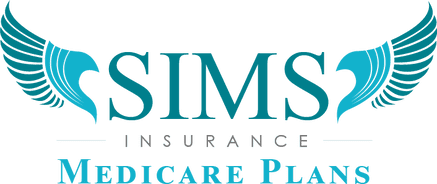Over 28 million people were enrolled in Medicare Advantage Plans in 2022, accounting for nearly half of all Medicare beneficiaries. This number continues rising annually as more seniors opt for Medicare Advantage over Original Medicare. Why is enrollment in Medicare Advantage Plans growing so rapidly? What key advantages do these plans offer that older adults find appealing? This article explores the top reasons Medicare Advantage has become the choice of over 50% of new Medicare enrollees and why the trend is likely to continue as more boomers age into the program.
Open enrollment: Medicare Coverage Choices for Seniors
When you turn 65 or otherwise become eligible for Medicare, you have a decision to make regarding your coverage. The first option is Original Medicare from the federal government, which includes Part A hospital insurance and Part B medical insurance.
The other option is enrolling in a Medicare Advantage Plan offered by private insurance companies. Medicare Advantage Plans incorporate all the benefits of Parts A and B but deliver this coverage in different ways. The purpose of this article is to provide an in-depth look at why so many older adults are electing Medicare Advantage Plans over Original Medicare when signing up for coverage.
Comprehensive Medical and Hospital Benefits
One of the main appeals of Medicare Advantage Plans is that they include all the same medical and hospital benefits found in Original Medicare Parts A and B. Medicare Advantage Plans are required to cover all services covered under Original Medicare. This means doctor visits, hospitalizations, preventive care, surgeries, and medical treatments have the same coverage.
Medicare Advantage Plans also offer stability since this is guaranteed coverage required by Medicare. Seniors do not have to worry about losing access to healthcare services. So unlike some commercial insurance alternatives like Medicare Supplements that only fill gaps, Medicare Advantage provides comprehensive health benefits older adults can rely on.
In addition to including all Original Medicare benefits, many Medicare Advantage Plans also provide coverage for additional services like dental, vision and hearing care. These extra benefits not available through Original Medicare make the Medicare Advantage coverage package more robust. The integrated dental, vision and hearing coverage under one plan is convenient for seniors and protects against having to purchase multiple policies. Even those in excellent health can benefit from included preventive dental cleanings and vision examinations to maintain health. By offering extras on top of the traditional Medicare coverage, Medicare Advantage becomes an attractive total health solution.
Predictable Healthcare Costs with Annual Limits
Original Medicare does not limit how much a senior could spend out-of-pocket each year on healthcare costs. There is no cap on the 20% coinsurance you are responsible for paying on most services after meeting deductibles. To control costs, many choose to buy supplemental Medigap coverage to pay these coinsurance amounts. However, Medicare Advantage Plans are structured differently and include annual out-of-pocket maximum limits that provide cost certainty.
Each plan sets a limit on your total in-network costs for the year for covered medical services. Once you reach that maximum, you pay nothing more for the remainder of the year regardless of how many services you use. This allows seniors to plan their finances and know their total healthcare spending liability each year. Out-of-pocket limits in 2023 can be no more than $8,300 for Medicare Advantage Plans. Most have limits well below the allowed maximum.
Within Medicare Advantage coverage, services also have defined copay or coinsurance costs rather than the 20% uncertainty with Original Medicare. A doctor visit may cost $10, a hospital stay may be a $250 copay per day, an urgent care visit may be a $40 copay, etc. These set dollar amounts per service allow seniors to estimate potential expenses especially when managing chronic conditions that require frequent care. The cost structure of Medicare Advantage Plans with copays, networks and spending limits provides more financial certainty that appeals to older adults shopping for the best value.
Local Provider Networks Create Convenience
Most Medicare Advantage Plans use provider networks to deliver benefits. Each plan partners with certain hospitals, physicians, pharmacies, labs and specialists in an enrollee’s local area to form an integrated healthcare system. When you enroll, you select a primary care doctor and agree to get covered care from the plan’s network providers.
Services generally require prior authorization and referrals within the network. This managed care model provides convenience since everything is handled through your Medicare Advantage Plan using their contracted providers. You do not have to research which doctors take Medicare and submit claims. The health plan coordinates benefits and manages authorizations. Maintaining access to local providers you know and trust is also important to older adults. Medicare Advantage networks are designed to provide access to high quality providers right in your community.
Using in-network Medicare Advantage providers also keeps costs low. Visits to your primary care doctor may just entail a small copayment. Specialist visits, procedures and hospital stays also have lower copays when using in-network facilities. With Original Medicare, you would owe 20% coinsurance for many services if you did not have supplemental coverage through a Medigap policy. The provider networks and coordinated care offered by Medicare Advantage Plans simplify getting care locally at lower costs compared to managing providers on your own with Original Medicare.
Medicare Advantage Offers Care Coordination
Medicare Advantage Plans aim to provide coordinated care for enrollees whereas Original Medicare has a more fragmented fee-for-service model. Having a primary care doctor oversee a senior’s care, make referrals to specialists, and enable care transitions across settings is extremely helpful. This care coordination role based around the primary care doctor along with utilization management through prior authorizations and care pathways makes Medicare Advantage Plans feel less impersonal.
Seniors interact with their own care team led by the primary physician rather than navigating Medicare solo. Ongoing relationships and care coordination are important to older adults, especially those managing multiple chronic conditions. Medicare Advantage Plans invest heavily in programs to assist seniors in getting appropriate healthcare services when needed through their managed plan.
Protection from High Medical Costs
With no limit on out-of-pocket spending under Original Medicare, seniors must pay 20% coinsurance with no ceiling for how much this could add up to each year. This exposes them to potentially very high medical costs from extended hospital stays or years with significant health events. Even with a Medigap policy to cover most coinsurance amounts, this still requires paying Medigap premiums on top of Original Medicare premiums.
Medicare Advantage offers protection against runaway medical costs with the annual out-of-pocket limits. Regardless of health situations, once an enrollee spends up to the plan’s maximum for in-network covered services, they pay nothing more for the remainder of the year. This gives peace of mind against the threat of sky-high healthcare bills wiping out retirement savings. The financial protections inherent to Medicare Advantage Plans provide seniors great comfort.
Potentially Lower Premium Costs
For seniors on fixed incomes, Medicare Advantage premium costs are also attractive. Many plans have no monthly premium beyond the standard Medicare Part B premium. Others have relatively low premiums of $20 or $30 per month. This contrasts with Medigap premiums which run around $150 per month on average. While Medigap covers nearly all out-of-pocket costs, the premium expense is continuous. A Medicare Advantage Plan with a $0 or low premium helps make retirement benefits stretch further even when accounting for healthcare cost sharing. The overall costs of Medicare Advantage Plans may provide savings for relatively healthy seniors compared to Original Medicare plus supplemental Medigap policies.
Individual Health Factors Determine the Best Fit
Ultimately, the right Medicare coverage comes down to individual circumstances and needs. Those with complex medical situations and frequent doctor visits may get more value from Original Medicare plus Medigap to minimize coinsurance. But for seniors in average or relatively good health, the benefits of Medicare Advantage like predictable copays and lower premiums can make financial sense and provide sufficient coverage.
If dental, vision and hearing coverage are priorities, Medicare Advantage becomes more appealing to gain access to these extra benefits. Trusted advisors like doctors may recommend Medicare Advantage Plans available locally that they accept and believe provide high quality coordinated care tailored to older adults. Seniors also follow the experience and suggestions of families and friends who have had positive experiences with Medicare Advantage. The ability to match coverage specifics to an individual’s health profile and preferences makes Medicare Advantage Plans a wise solution for many seniors.
Medicare Advantage Plan Networks Designed for Local Communities
Some skeptics of managed Medicare Plans point to restricted provider networks as a downside. But Medicare Advantage networks are designed specifically around the doctors, specialists, and hospitals in a community. This provides seniors local access to the providers needed in their geographic area. Medicare Advantage Plans have flexibility to construct provider networks matching where their members live. The plans offer choices of doctors and facilities focused right in the neighborhoods where seniors reside. Rather than limiting access, well-constructed networks give Medicare Advantage members a selection of high quality and convenient care options near home covered at in-network rates. Available providers also factor into seniors’ plan selections during open enrollment to ensure satisfactory local care options.
Potential Financial Savings for Older Adults
The combination of lower premiums and total annual out-of-pocket cost limits can translate into significant savings for some Medicare Advantage enrollees compared to alternatives. Even accounting for copays, Medicare Advantage on average costs $100 per month less than Medigap premiums paired with Medicare Part B. For healthier seniors who utilize fewer healthcare services, this compounds into over $1,000 in annual savings going with Medicare Advantage.
Additionally, some plans provide allowances that reduce other costs for seniors such as gym membership reimbursement, transportation benefits, and prescription eyewear allowances. For retirees carefully budgeting, the financial advantages of Medicare Advantage certainly appeal compared to paying Medigap premiums or 20% Medicare coinsurance without limits. The structure of Medicare Advantage Plans can provide tangible cost savings.
Managed Care Model Preferred by Some Seniors
The managed care approach used by Medicare Advantage provides another level of support some seniors strongly prefer over Original Medicare’s open access. Care coordination, integrated benefits, and utilization management may feel restrictive to those wanting unlimited choice. But many older adults find comfort in having a health plan closely involved in managing providers and their full healthcare picture. Medicare Advantage removes the burden of assembling providers, submitting claims, and maximizing benefits.
Appreciation of this simpler managed care model with aligned incentives appeals to seniors wanting coordinated assistance as they age. Additionally, focus on preventive care, wellness, and chronic disease programs provides valued support for achieving health goals and detecting issues early. While managed care has downsides, many older adults gravitate toward this preference and respond well to the structure.
Conclusion: Medicare Advantage Resonates with Diverse Senior Needs
In conclusion, the increasing enrollment in Medicare Advantage Plans reflects how these options succeed in addressing the diverse needs of modern seniors. Comprehensive benefits, financial protections, coordinated care, extra benefits, and local provider networks are all tangible advantages that Medicare Advantage Plans purposefully provide to attract older adults.
While Original Medicare works well for many, a Medicare Advantage Plan can prove the better solution for an individual based on their health profile, finances, provider access, convenience factors, experience with managed care, and desired support. Medicare Advantage resonates for positive reasons with over half of seniors selecting plans.
This trend seems likely to continue as more boomers seek coverage aligning with their unique circumstances. Rather than a compromise, Medicare Advantage offers tangible benefits making it the preferred option for millions of satisfied older adults. But it ultimately depends on personal factors. Understanding differences allows new enrollees to confidently pick the best Medicare path.
We’re Here to Help
You do not have to spend hours reading articles on the internet to get answers to your Medicare questions. Give Scott Sims at Sims Insurance Medicare Plans a Call at (541) 915-0939. You will get the answers you seek in a matter of minutes, with no pressure and no sales pitch. We are truly here to help.
FAQs
Why do so many older adults choose Medicare Advantage?
Many older adults choose Medicare Advantage because these plans often offer additional benefits such as dental coverage, prescription drug coverage, and other services not covered by traditional Medicare. Additionally, Medicare Advantage Plans can provide more comprehensive coverage in a single plan, rather than having to piece together coverage from different insurers.
What are the benefits of choosing a Medicare Advantage Plan?
Medicare Advantage Plans typically offer all the benefits of traditional Medicare along with additional benefits such as vision, dental, and prescription drug coverage. They may also include fitness memberships, transportation services, and other wellness programs that are not covered by Original Medicare.
Can Medicare Advantage Plans provide prescription drug coverage?
Yes, many Medicare Advantage Plans include prescription drug coverage as part of their benefits package. This can be a valuable addition for beneficiaries who need help covering the costs of their medications.
Are there any limitations to choosing a Medicare Advantage Plan?
Medicare Advantage Plans may have network restrictions, meaning that beneficiaries may need to use specific doctors or hospitals within the plan’s network. Additionally, not all Medicare Advantage Plans offer the same level of coverage, so it’s important to carefully review the details of each plan before making a decision.
What is a Special Needs Plan (SNP) in the context of Medicare Advantage?
Special Needs Plan is a type of Medicare Advantage Plan specifically designed to provide targeted care for beneficiaries with specific health conditions or needs. These plans are tailored to the unique needs of the beneficiaries they serve.
Can Medicare beneficiaries enroll in both traditional Medicare and Medicare Advantage?
No, individuals cannot be enrolled in both traditional Medicare and a Medicare Advantage Plan at the same time. Beneficiaries must choose one type of coverage or the other, although they can switch between the two during specific enrollment periods.
How does the Medicare open enrollment period impact beneficiaries choosing a Medicare Advantage Plan?
During the Medicare open enrollment period, beneficiaries have the opportunity to select or switch their Medicare Advantage Plan. This annual window allows individuals to review their options and make changes to their coverage based on their evolving health needs.
What should Medicare beneficiaries consider when deciding between a Medicare Advantage Plan and a Medigap Plan?
Medicare Advantage Plans provide comprehensive coverage through private insurers, while Medigap Plans are designed to supplement traditional Medicare by filling the gaps in coverage. Beneficiaries should weigh factors such as cost, coverage limitations, and provider networks when making this decision.
Are all healthcare providers and facilities required to accept Medicare Advantage Plans?
Not all healthcare providers and facilities accept Medicare Advantage Plans. Beneficiaries should check with their healthcare providers to ensure that they are within the network of the Medicare Advantage Plan they are considering to avoid unexpected costs or coverage limitations.
What resources are available to help Medicare beneficiaries understand and compare their Medicare Advantage Plan options?
The Centers for Medicare & Medicaid Services (CMS) provides tools such as the Medicare Plan Finder to help beneficiaries compare Medicare Advantage Plans. Additionally, the State Health Insurance Assistance Program (SHIP) and other resources offer personalized counseling to help beneficiaries understand their options and make informed decisions.


